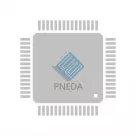Precise joint position detection, Hall elements improve the efficiency of robot movement

With the rapid development of science and technology, the application of robot technology in all walks of life is more and more extensive. Whether in industrial manufacturing, medical assistance, or home services, the flexibility and efficiency of robots have become the key to their success. In order to realize the efficient movement of the robot, the precise detection of joint position plays a crucial role. As an efficient sensor, Hall components have undoubtedly become the preferred material in this field, which can greatly improve the motion efficiency of robots.
Basic principles of Hall elements
Hall components operate based on the Hall effect, in which the presence of an external magnetic field causes the movement of charge carriers (electrons or holes) to deviate from their normal path when a current passes through a semiconductor material, creating a voltage difference on both sides of the material. This voltage difference is proportional to the strength of the magnetic field and can be detected and processed by sophisticated circuitry. Hall components are excellent in joint position detection because of their high sensitivity, small size and low power consumption.
The importance of joint position detection
In a robot's motion system, joints are the key to connecting the various parts and allowing movement. Accurate joint position detection can achieve several goals:
1. Improve control accuracy: fine joint position feedback can make the robot more accurate when performing various tasks. For example, in processes such as welding and spraying, ensuring the accurate position of robotic tools is critical to product quality.
2. Enhanced flexibility: Robots often need to adjust positions quickly when performing complex operations. The high precision position detection can make the robot realize self-correction and adjustment in a wide range and increase its adaptability.
3. Ensure safety: Through real-time monitoring of joint position, abnormal conditions can be detected in time, and appropriate protective measures can be taken to ensure the safety of operators and equipment.
Application of Hall element in joint position detection
In robotic systems, the use of Hall elements for joint position detection has obvious advantages. The following aspects are a few examples of its application to significantly improve the efficiency of exercise.
1. Adapt to multiple work environments
Hall components have excellent tolerance and can work stably in high temperature, high humidity, dust and other environments. This characteristic makes it widely used in robots in a variety of industries, whether on the factory floor, or in medical facilities, Hall components can play a stable sensing role.
2. Realize contactless measurement
Traditional joint position detection often relies on mechanical contact, which can easily lead to wear, stuck, and thus affect the life of the equipment. Hall components detect position in a contactless manner, which not only reduces mechanical friction, but also improves the overall reliability and response speed of the system.
3. Integrated design
The miniaturization of Hall components makes it easy to integrate into the robot's joint system, reducing the installation space required and simplifying the overall design. This feature enables the robot to maintain a compact design without sacrificing its joint position detection performance.
4. Real-time feedback
Hall elements provide real-time feedback on joint position. This immediate feedback is particularly important in high-speed operations, enabling the control system to adjust the robot's motion state in time, further improving the overall work efficiency.
5. Cost effectiveness
Compared to other types of sensors, Hall components have lower production costs and reduce operating costs in long-term use due to their low maintenance requirements. This makes Hall elements an economical option for improving the efficiency of robot motion.
The improvement of robot movement efficiency
After the joint position detection with Hall element, the motion efficiency of the robot is significantly improved. First, with its high-precision feedback, the robot's motion control system is able to respond more sensitively to commands, resulting in faster motion response times. Secondly, efficient position detection enables robots to navigate in real time in complex environments, improving the level of automation. Finally, after integrating Hall components, the overall design of the robot is more reasonable, which can optimize the mechanical structure and improve the overall performance.
Future prospect
With the continuous progress of robotics, the application of Hall components will continue to expand. In the future, with the improvement of the level of intelligence and automation, joint position detection technology is expected to further develop, combined with other advanced technologies, such as artificial intelligence, big data analysis, etc., to bring new opportunities and challenges to the robot industry.
In this era of sustainable development, improving the efficiency of robot movement is not only the demand for scientific and technological development, but also an important driving force to promote the progress of various industries. Hall element is a key component in this process, and its application in joint position detection has become an important means to improve the overall performance of the robot.
From industrial manufacturing to daily life, the potential of Hall components is still broad, and future exploration and innovation will continue to promote the evolution of robotics and bring more possibilities.
The Products You May Be Interested In
 |
CP3500AC54TEZ | AC/DC CONVERTER 54V 3500W | 7344 More on Order |
 |
ULDT006A0X43-SRZ | MODULE DC DC CONVERTER | 4914 More on Order |
 |
ULDT012A0X3-SRZ | DC DC CONVERTER 0.45-5.5V | 3978 More on Order |
 |
AXH010A0PZ | DC DC CONVERTER 1.2V 12W | 5832 More on Order |
 |
AXH010A0G3 | DC DC CONVERTER 2.5V 25W | 8424 More on Order |
 |
AXH010A0F93-SRZ | DC DC CONVERTER 3.3V 33W | 3798 More on Order |
 |
ESTW025A0F641-HZ | DC DC CONVERTER 3.3V 83W | 4500 More on Order |
 |
EBVW025A0B9641-PZ | DC DC CONVERTER 12V 300W | 2718 More on Order |
 |
APTH003A0X-SR | DC DC CONVERTER 0.6-3.63V 11W | 6822 More on Order |
 |
HW010A0G1-SZ | DC DC CONVERTER 2.5V 25W | 4932 More on Order |
 |
QRW025A0G641 | DC DC CONVERTER 2.5V 63W | 8802 More on Order |
 |
QHW075A1-Q | DC DC CONVERTER 5V 75W | 4536 More on Order |
 |
QBE025A0B1-P | DC DC CONVERTER 12V 300W | 6714 More on Order |
 |
LW030A87 | DC DC CONVERTER 5V 30W | 7470 More on Order |
 |
JW060ABK | DC DC CONVERTER 5V +/-12V 60W | 6822 More on Order |
 |
JW050F1 | DC DC CONVERTER 3.3V 33W | 4302 More on Order |
 |
JRW040A0A1 | DC DC CONVERTER 5V 200W | 5220 More on Order |
 |
JBW050F1 | DC DC CONVERTER 3.3V 33W | 3852 More on Order |
 |
CW025ACL-M | DC DC CONVERTER 5V +/-15V 25W | 7776 More on Order |
 |
QBVW033A0B61-PHZ | DC DC CONVERTER 12V 400W | 3096 More on Order |
 |
JRCW450U64-18Z | DC DC CONVERTER 48V 450W | 3258 More on Order |
 |
SHHN000A3CL41-SRZ | DC DC CONVERTER +/-15V 9W | 2538 More on Order |
 |
APXH006A0X-SRZ | DC DC CONVERTER 0.6-3.6V 21W | 8766 More on Order |
 |
AXA003A0X-SRZ | DC DC CONVERTER 0.8-5.5V 16W | 16110 More on Order |









